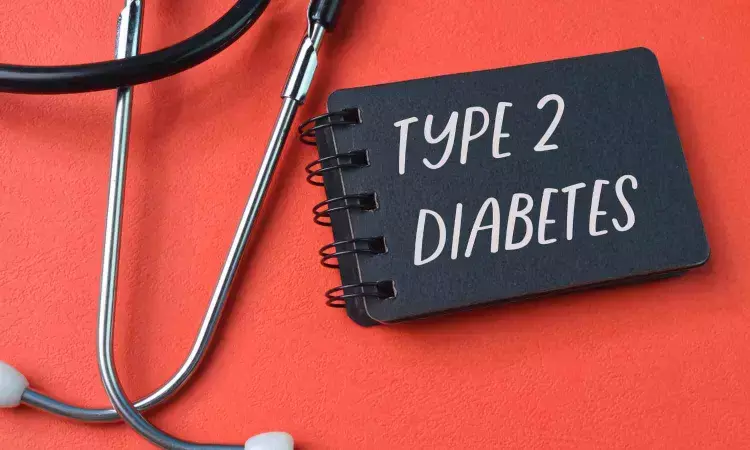- Home
- Medical news & Guidelines
- Anesthesiology
- Cardiology and CTVS
- Critical Care
- Dentistry
- Dermatology
- Diabetes and Endocrinology
- ENT
- Gastroenterology
- Medicine
- Nephrology
- Neurology
- Obstretics-Gynaecology
- Oncology
- Ophthalmology
- Orthopaedics
- Pediatrics-Neonatology
- Psychiatry
- Pulmonology
- Radiology
- Surgery
- Urology
- Laboratory Medicine
- Diet
- Nursing
- Paramedical
- Physiotherapy
- Health news
- Fact Check
- Bone Health Fact Check
- Brain Health Fact Check
- Cancer Related Fact Check
- Child Care Fact Check
- Dental and oral health fact check
- Diabetes and metabolic health fact check
- Diet and Nutrition Fact Check
- Eye and ENT Care Fact Check
- Fitness fact check
- Gut health fact check
- Heart health fact check
- Kidney health fact check
- Medical education fact check
- Men's health fact check
- Respiratory fact check
- Skin and hair care fact check
- Vaccine and Immunization fact check
- Women's health fact check
- AYUSH
- State News
- Andaman and Nicobar Islands
- Andhra Pradesh
- Arunachal Pradesh
- Assam
- Bihar
- Chandigarh
- Chattisgarh
- Dadra and Nagar Haveli
- Daman and Diu
- Delhi
- Goa
- Gujarat
- Haryana
- Himachal Pradesh
- Jammu & Kashmir
- Jharkhand
- Karnataka
- Kerala
- Ladakh
- Lakshadweep
- Madhya Pradesh
- Maharashtra
- Manipur
- Meghalaya
- Mizoram
- Nagaland
- Odisha
- Puducherry
- Punjab
- Rajasthan
- Sikkim
- Tamil Nadu
- Telangana
- Tripura
- Uttar Pradesh
- Uttrakhand
- West Bengal
- Medical Education
- Industry
Higher blood concentrations of testosterone tied to reduced risk of developing type 2 diabetes in men under 65: Study

Testosterone appears protective against developing type 2 diabetes in men who are overweight or obese and under age 65, but not in men over that age, according to a study presented Saturday at ENDO 2024, the Endocrine Society’s annual meeting in Boston, Mass.
“A low blood testosterone concentration is an independent risk factor for developing type 2 diabetes, and high levels of testosterone appear protective against the development of type 2 diabetes,” said lead researcher Mahesh Umapathysivam, M.B.B.S., of the University of Adelaide in Adelaide, South Australia, Australia. “We wanted to better understand the relationship between testosterone and type 2 diabetes risk across the range of testosterone levels, and to examine interactions between testosterone and different diabetes risk factors in middle aged and older men.”
The researchers analyzed data from the MAILES Cohort, a group of men ages 35 to 85 years living in urban Adelaide. The study included 1,315 men, none of whom had diabetes, cancer or testosterone treatment at the beginning of the study. After five years, 110 of the men had developed type 2 diabetes (8.4%).
After correcting for known factors that affect type 2 diabetes risk including age, waist circumference, measures of blood sugar, family history of diabetes, smoking, alcohol intake, self-reported physical activity and medication use, the researchers found that blood testosterone concentration was associated with the risk for developing type 2 diabetes.
They found that in men under age 65, the higher a man’s blood testosterone level, the lower their risk of developing type 2 diabetes.
“This implies that higher testosterone blood concentrations are associated with reduced risk of developing type 2 diabetes,” Umapathysivam said. "In contrast, there were no detectable effects of blood testosterone levels on diabetes risk in men over age 65.”
Umapathysivam added, “Maintaining a heathy weight, exercising regularly and avoiding alcohol helps maintain a normal testosterone level in most men and also help prevents type 2 diabetes.”
Reference:
Higher blood concentrations of testosterone are associated with reduced risk of developing type 2 diabetes in men under 65, The Endocrine Society, Meeting: ENDO 2024.
Dr Kamal Kant Kohli-MBBS, DTCD- a chest specialist with more than 30 years of practice and a flair for writing clinical articles, Dr Kamal Kant Kohli joined Medical Dialogues as a Chief Editor of Medical News. Besides writing articles, as an editor, he proofreads and verifies all the medical content published on Medical Dialogues including those coming from journals, studies,medical conferences,guidelines etc. Email: drkohli@medicaldialogues.in. Contact no. 011-43720751


